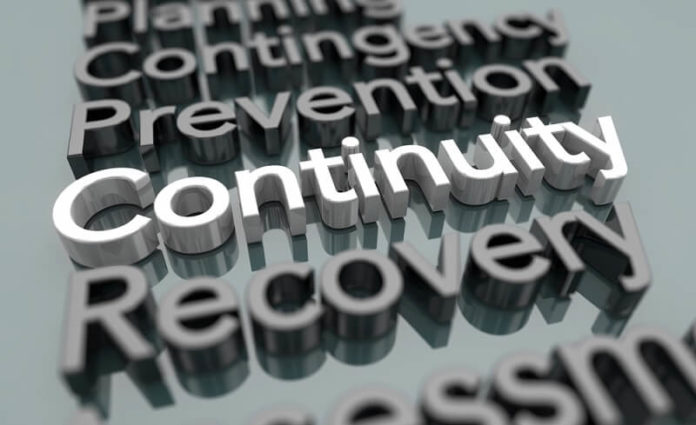No one could have predicted that a global pandemic would cause massive economic disruption. Without question, restoring your business to a solid financial footing is imperative, but you can implement lessons learned for a brighter tomorrow.
One critical lesson of the COVID-19 era is that business owners should always look for ways to stimulate cash flow for their businesses and keep enough in cash reserves to sustain operations during downturns. Start implementing new approaches to generate cash flow now to safeguard your business.
Owning a business is full of ups and downs, but yours can thrive even in the hardest-hit times. Take time to reflect on how you approached the COVID-19 scenario and create a plan for a successful next chapter.
Stimulate Cash Flow
When a crisis hits, your priority is navigating the situation at hand. But soon, you need to shift focus to generating enough cash flow to sustain your business during a difficult passage. Here are a few crisis-ready cash flow strategies from the Harvard Business Review:
- Offer guarantees or warranties – In a scenario like COVID-19, where economic upheaval is widespread, your customers may feel less confident parting with their dollars. You can motivate them to buy from you by taking on some risk through a guarantee or warranty.
- Create new pricing models – If you offer useful or necessary items, some of your customers may be quite willing to spend money to stock up. Look at new pricing and bundling models to motivate purchases–and consider future discounts or gift card incentives to drive repeat buying.
- Find ways to acquire new customers – As digital adoption increases, many people are turning to online sources for items they want to buy. Also, many people are exploring new technology and entertainment options. You can capitalize on these trends and get your products and services in front of new customers, whether through mergers, acquisitions, or focused outreach to high-potential markets.
Thinking about these approaches now can help safeguard your business from future disruptions and downturns. After all, it’s better to be prepared.
Know How Much Cash You Need in Reserve
Every business needs cash reserves in case revenues shrink or unplanned major expenses surface. Having enough cash on hand is especially important for small businesses since an estimated 30 percent fail because they run out of money.
How much cash do you need? A healthy reserve to cover lean times is equal to three to six months of expenses. A financial professional can help you work out what’s best for your business.
One way to generate more cash is by owning your business real estate. As a property owner, you can benefit from predictable mortgage payments instead of facing rising lease rates. You may be able to lease some of your space to earn rental income and potentially deduct depreciation to lower your business income and pay less in taxes.
By knowing how much cash you need to put into your business, you can shift extra dollars to your personal balance sheet. This approach will help you build wealth over time instead of depending on selling your business in the future for a profit.
Unfortunately, there is no guarantee that your business will achieve returns or exist in the future. Be sure to contribute to your own wealth now to create financial well-being for yourself and your family.
Move Cash into Protected Areas on Your Personal Balance Sheet
By knowing how much cash you have available, you can transfer some to your personal balance sheet, ensuring you have enough money on hand to support your personal wealth growth. Similar to a business balance sheet, your personal balance sheet is a summary of your assets and liabilities. It gives you a picture of your wealth at any point in time and helps you stay on course to meet personal financial goals.
Why is this a good idea? Although no one likes to think about negative scenarios, businesses encounter difficulties every day. For example, your enterprise could face a lawsuit that puts all of your business assets at risk. However, by moving funds to personal assets–especially joint-owned ones–you can safeguard your dollars. This strategy limits your business’s legal liability while protecting your personal finances. You don’t want to put your personal financial health at risk if your business faces a major setback or fails.
Smart Financial Strategies for Uncertain Times
The coronavirus pandemic rocked the business world, with many small businesses facing hardships. According to a recent survey, 81% of small businesses have lost revenue due to COVID-19 (4). Fortunately, small businesses with a solid financial plan were able to withstand the storm and position themselves for recovery. For other businesses, the pandemic was a wake-up call to reexamine financial priorities.
If you own and operate a small business, you can learn from the turmoil and look ahead to smart strategies to bolster your business.
John W. Lentz, ChFC, is the President of Strategic Wealth Group where he delivers valuable services in a coordinated and holistic way. Lentz and his team look beyond your basic financial needs and seek to optimize your assets, protection, and cash flow — and minimize your debt — now and in the future. Our objective is to put you on a path to efficient wealth accumulation and financial balance, while protecting the future of your loved ones and your livelihood. Learn more on LinkedIn.
Business recovery stock photo by iQoncept/Shutterstock







